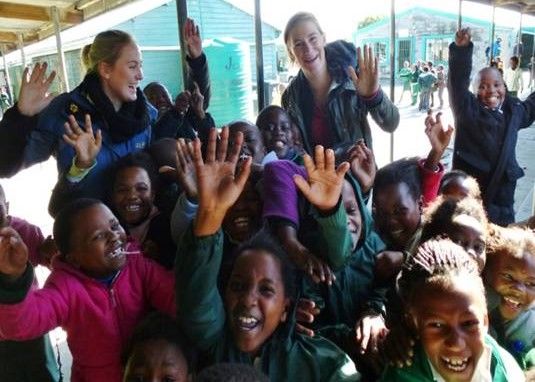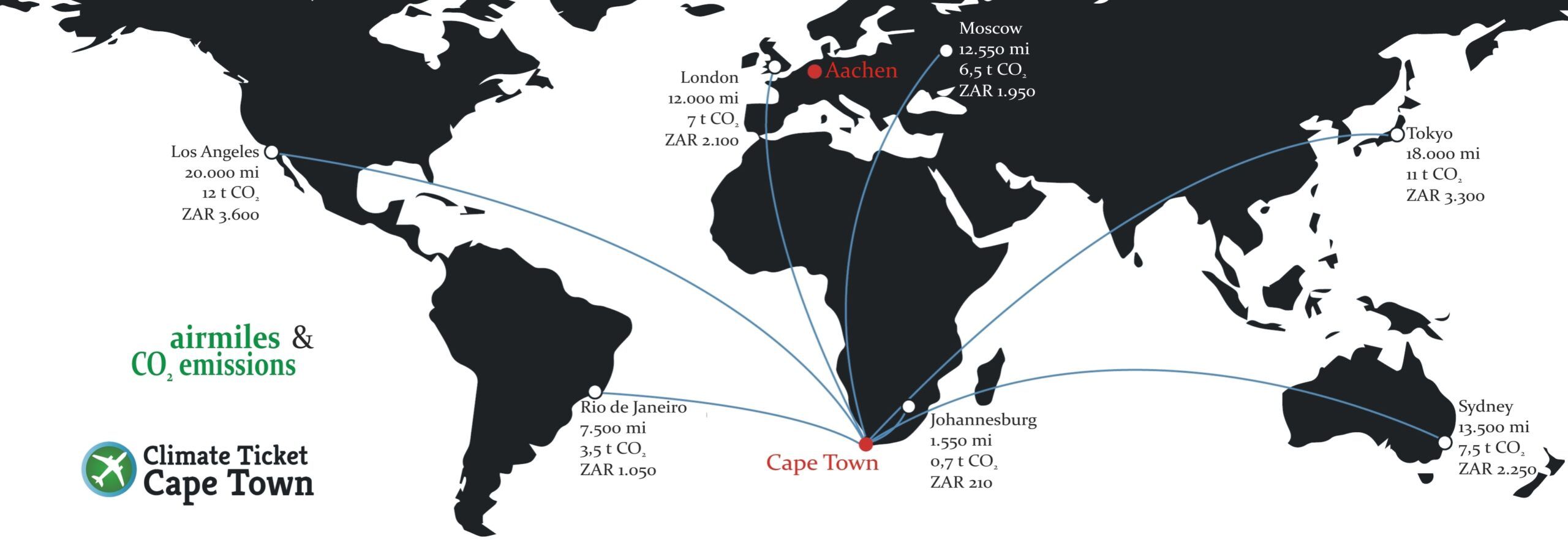Climate Ticket Cape Town – CTCT (2013-2016)
The Cape Town Climate Ticket CTCT was designed as a counterpart to the existing Aachen-Cape Town Climate Ticket within the partnership.
Term paper by KatHo students 2013
The idea was developed by the three students Lisa-Marie Emonts, Pauline Reifferscheidt and Martin Rietschel of the Catholic University Aachen (KatHo) during an internship semester (in the winter semester 2013/14) in Cape Town with the then project partner of the Aachen-Cape Town Climate Ticket, Abalimi Bezkhaya. The three students had set themselves the goal of enabling companies or individuals from Cape Town to offset their respective CO2 emissions locally by supporting various ecologically and socially sustainable projects. They drew up an initial concept and defined the framework conditions for the CTCT. In their term paper, they proposed an ASA project to continue their work and develop it in more detail.



ASA-Project 2014
The two ASA scholarship holders Zara Kodabaksh and Lars Schmidtke continued their work at the CTCT in the last three months of 2014.
In doing so, they had to deal with many challenges, which mainly concerned the IT area and were based on intercultural difficulties. Their “typical German” way of working was not compatible with the South African view of time and led to frustration and isolation. At least a first flyer was created, but not the hoped-for website.
At the beginning of 2015, some of the website content planned by the ASA participants was uploaded to the Farm & Garden Trust website, so that there was at least some information about the CTCT online.



2015-2016 Project management at Abalimi Bezekhaya
Norbert Kuntz, a specialist from Bread for the World who was now working at Abalimi, was responsible for further development. A new website was created, populated with content and the flyer was further developed. CTCT was finally presented at a public event of the City of Cape Town on 16 March 2016. Abalimi, Greenpop and SEED signed corresponding agreements as recipient organisations. The organisation of the CTCT was placed in the hands of Abalimi after the end of Norbert Kuntz’s stay as a specialist. Unfortunately, no one there remained committed to the project.


